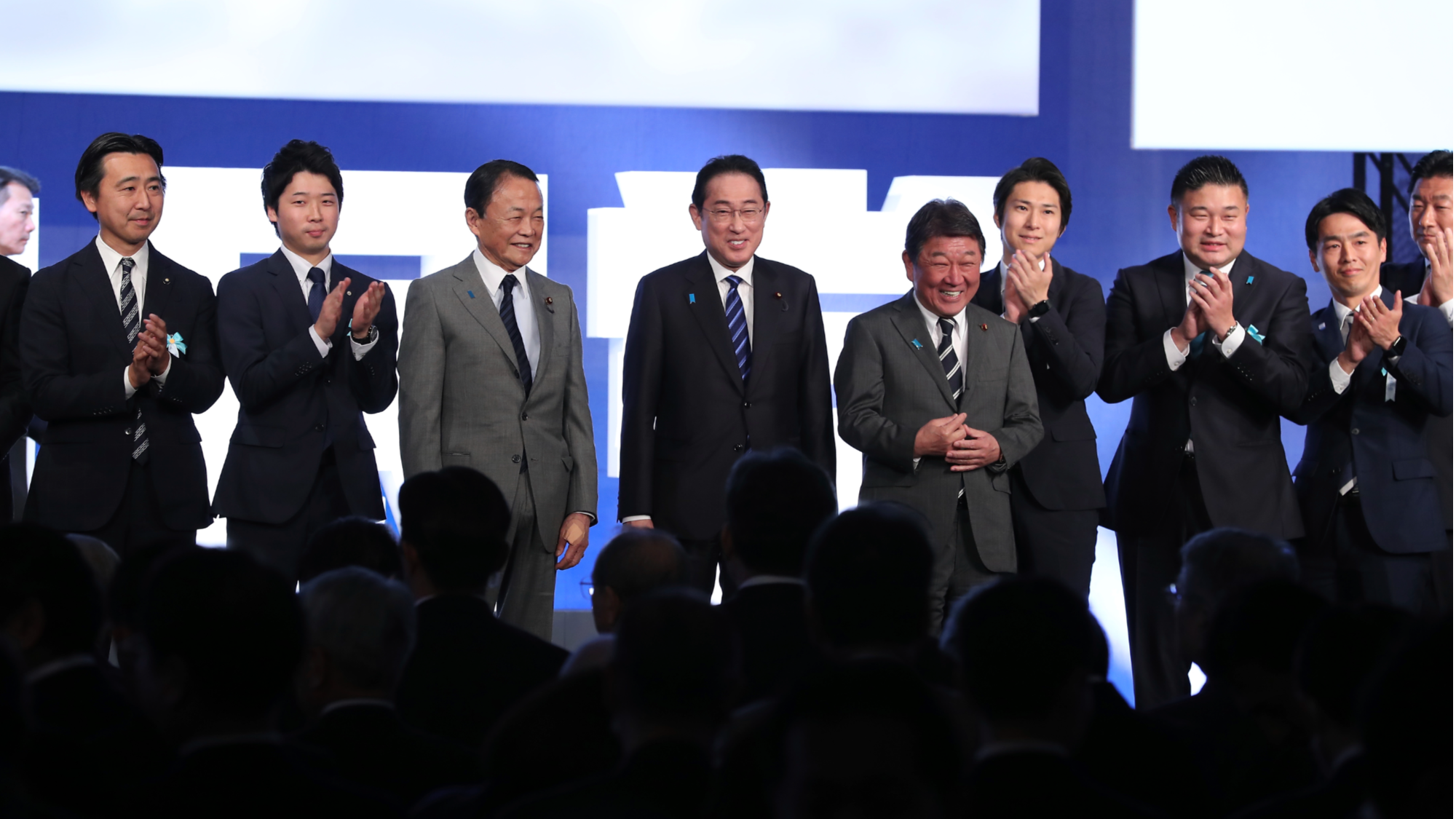
More than 10 candidates have emerged to replace Japanese Prime Minister Fumio Kishida as Liberal Democratic Party president after he decided not to seek re-election as LDP leader.
Kishida had faced mounting pressure from LDP lawmakers who feared the party would face significant losses in upcoming elections under his leadership.
Takayuki Kobayashi, former minister of economic security, became the first to officially declare his candidacy on Monday.
READ MORE: LDP slammed over ‘pseudo-reform’ on slush funds scandal
The same day, Japan’s Foreign Minister Yoko Kamikawa told reporters at Tokyo’s Haneda Airport ahead of a trip to India that she is preparing for her candidacy.
Unlike previous LDP leadership races, which typically featured a 12-day campaign period, this election will have an extended timeline to allow for more local debates, the daily newspaper The Nikkei reported.
“Today’s LDP lacks the kind of heavyweight politicians it once had,” said Takakage Fujita, secretary-general of the Association for Inheriting and Propagating the Murayama Statement, a Japanese civic group.
“As a result, while more than 10 politicians have expressed their intention to run in the upcoming LDP leadership election, none of them have presented a grand vision or a comprehensive plan for Japan’s future,” Fujita said.
Kishida’s government has gone awry after losing public trust and failing to present concrete measures to regain it, according to a recent editorial by the Asahi Shimbun newspaper.
Dissatisfaction has erupted among the younger members of the LDP, who believe they cannot win the next general election, said Satoshi Tomisaka, a professor at the Institute of World Studies at Takushoku University.
Tomisaka also noted that Kishida failed to gain the support of LDP Vice-President Taro Aso, a key figure he had relied on.
“The most important factor leading to Kishida’s decision seems to be the significant decline in his approval ratings. The LDP remains in power not because of its superiority, but as a result of elimination, with voters concluding that it is still better than the opposition,” said Tomisaka.
Public support for Kishida’s cabinet was 19.4 percent in August — below 20 percent for the ninth straight month, though the figure rebounded slightly from July — according to an opinion poll published by Jiji Press on Aug 8.
Public dissatisfaction with the Kishida administration and Japan’s political scene is mostly directed at economic issues, said Tomisaka.
The LDP covering up problems associated with the issues of politics and money has also led to public disappointment, said Kazuyuki Hamada, an international political economist and former member of the House of Councillors.
“With the Kishida administration’s approval rating falling below 20 percent, there is little chance of winning the upcoming upper house and lower house elections under the current conditions,” said Hamada.
“The administration could not withstand the calls for resignation from both inside and outside the party,” he added.
Changing leaders is a tactic the LDP has repeatedly used, according to Fujita from the Murayama Statement civic group.
“When facing a crisis, the LDP changes its party leader, who is also the prime minister, to instill a sense of renewal among the public, thereby making them forget about the past money politics and corruption,” said Fujita.
He noted that the LDP could once again win in the general election, and the ruling coalition of the LDP and Komeito might continue.
Fujita said the onus is on the Constitutional Democratic Party of Japan (CDP), the largest opposition party, to prevent such a situation from happening again.
Noting the CDP will be holding its own leadership election around the same time in September, they must field a capable candidate, energize their leadership race, and prevent the LDP from dominating Japan’s television and newspapers for the next month, said Fujita.
READ MORE: Japan's ruling LDP loses 3 lower house seats in by-elections
The LDP should be aware that public distrust is not solely directed at Kishida but at the entire party, said the Asahi Shimbun editorial.
The critical test is whether the LDP can really reform itself and its approach to politics beyond changing its leader, the editorial added.
“For the LDP’s revival, the complete dissolution of factions is essential. Without bold reforms such as eliminating hereditary politicians and donations from specific companies or organizations, it will be impossible to regain public support,” said Hamada, the political economist.
Contact the writer at jiangxueqing@chinadaily.com.cn


